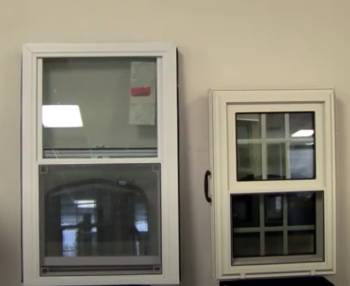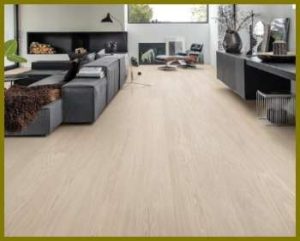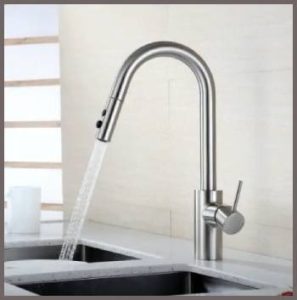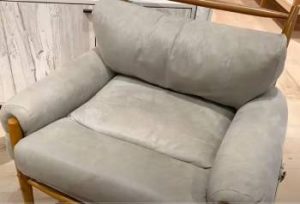When it comes to selecting the right windows for your home, the choices might seem overwhelming. This article will draw a comprehensive comparison between two popular choices: Vinyl and Aluminum windows.
We’ll delve into the strengths, weaknesses, and frequently asked questions about these two window materials, to help you make an informed decision.
A Brief Comparison Table
| Comparison Factor | Vinyl Windows | Aluminum Windows |
| Cost | Less expensive, offering a more budget-friendly option. | More expensive due to the strength and durability of the material. |
| Energy Efficiency | Superior thermal insulation, helping to reduce heating and cooling costs. | Less energy-efficient due to the high conductivity of aluminum. Some models offer thermal breaks to improve efficiency. |
| Durability | Durable, but can warp or crack under extreme heat. | Highly durable and can withstand extreme weather conditions. |
| Maintenance | Low maintenance, does not require painting or staining. | Low maintenance, but might need occasional repainting. |
| Aesthetics | Classic look, limited color options that cannot be easily changed. | Sleek, modern look with more flexibility for customization. |
| Lifespan | Approximately 15-20 years, depending on conditions and maintenance. | Longer lifespan of up to 30-40 years with proper care. |
| Noise Insulation | Better noise insulation due to superior thermal properties. | Adequate noise insulation, but not as effective as vinyl. |
| Environmental Impact | Made from non-recyclable PVC. | Made from recyclable materials, often containing a high percentage of recycled content. |
The Pros of Vinyl Windows

- Cost-Effective
One of the key selling points of vinyl windows is their affordability. When compared to aluminum, vinyl windows often come out as the less expensive option, making them an attractive choice for homeowners on a budget.
- Energy Efficient
The insulating properties of vinyl windows are exceptional. They are known to provide superior thermal efficiency, which can help reduce your heating and cooling costs.
- Low Maintenance
Vinyl windows are easy to care for. They do not require painting or staining, and are resistant to moisture, making them an excellent choice for areas prone to heavy rainfall or humidity.
Read More: About Differences Between Western Windows And Fleetwood
The Cons of Vinyl Windows
- Lack of Durability
While vinyl windows can last for several decades, they are not as sturdy as aluminum windows. Exposure to extreme heat can cause warping or cracking over time.
- Limited Customization
Vinyl windows usually come in limited colors and cannot be easily repainted. This lack of customization could be a drawback if you’re trying to match a specific color scheme.
The Pros of Aluminum Windows

- Durability and Longevity
Aluminum windows are highly durable and can withstand extreme weather conditions. They can last several decades with minimal maintenance, which can outweigh their initial cost.
- Modern Aesthetics
Aluminum windows have a sleek, modern look that complements contemporary home designs. Their thin frames allow for a greater glass-to-frame ratio, offering better views and more natural light.
The Cons of Aluminum Windows
- Poor Insulation
Aluminum is a good conductor of heat, making aluminum windows less energy-efficient than their vinyl counterparts. However, some aluminum windows come with thermal breaks to improve insulation.
- Costly
Aluminum windows tend to be more expensive than vinyl windows. While they offer durability and longevity, their high upfront cost may be prohibitive for some homeowners.
Frequently Asked Questions (FAQs)
While both materials have long lifespans, aluminum windows generally last longer due to their resistance to elements such as heat and humidity.
The answer largely depends on your needs. If you prioritize durability, modern aesthetics, and don’t mind the extra cost, aluminum may be a better choice. However, if you’re looking for cost-effectiveness, energy efficiency, and low maintenance, vinyl might be more suitable.
Vinyl windows are generally cheaper than aluminum windows, making them a cost-effective choice for homeowners.
The main disadvantages of vinyl windows are their potential to warp or crack under extreme heat and their limited color options.
The main disadvantage of aluminum windows is their lack of energy efficiency, although models with thermal breaks can help mitigate this. They are also more expensive than vinyl windows.
Yes, replacing old windows with new vinyl windows can increase your home’s value. This is due to their energy efficiency and appealing aesthetic.
Unlike vinyl windows, aluminum windows can be painted, offering a level of customization that vinyl lacks. This allows homeowners to change the window color to match their home’s aesthetic.
Typically, vinyl windows should be replaced every 15-20 years, while aluminum windows can last up to 30-40 years. However, this largely depends on the quality of installation, maintenance, and the environmental conditions they are exposed to.
While it is possible to install these windows yourself, it’s highly recommended to have them installed by a professional. Improper installation can lead to issues like air leaks, which can compromise the energy efficiency of your windows.
In conclusion, both vinyl and aluminum windows have their pros and cons. Your choice should depend on your priorities, be it durability, aesthetics, energy efficiency, or cost-effectiveness. We hope this guide helps illuminate your path to choosing the perfect windows for your home.
Read More: About Garden Window
Delving Deeper: Practical Considerations When Choosing Between Vinyl and Aluminum Windows
After understanding the pros and cons of vinyl and aluminum windows, you might wonder how to practically apply this information to make the best choice. There are some additional factors to take into account, such as environmental conditions, architectural style, and personal preferences.
- Environmental Impact
Consider the environmental impact of your choice. Vinyl windows, despite their many benefits, are not as eco-friendly as aluminum. They are made from PVC, a petroleum-based product that is non-recyclable. Aluminum, on the other hand, is highly recyclable and often made from a high percentage of recycled materials.
- Architectural Style
Consider the architectural style of your home. Aluminum windows, with their modern and sleek look, might be a better fit for contemporary homes. Vinyl windows, with their classic aesthetic, can blend well with traditional architecture.
- Noise Insulation
Consider noise insulation. Both aluminum and vinyl windows can provide some degree of soundproofing, but vinyl windows generally offer better noise insulation due to their superior thermal insulation properties.
Wrapping Up
Choosing between vinyl and aluminum windows can be a tough decision. Each material comes with its own set of advantages and disadvantages. Ultimately, your choice will depend on your specific requirements, preferences, and budget.
Keep in mind the long-term benefits and potential drawbacks of each option, and you’re sure to make a decision you’re happy with.
Remember, there’s no one-size-fits-all solution when it comes to choosing windows. Your decision should align with the style of your home, your budget, and your personal preferences. No matter which material you opt for, make sure to prioritize quality, as a well-made window, whether vinyl or aluminum, can serve you well for years to come.



